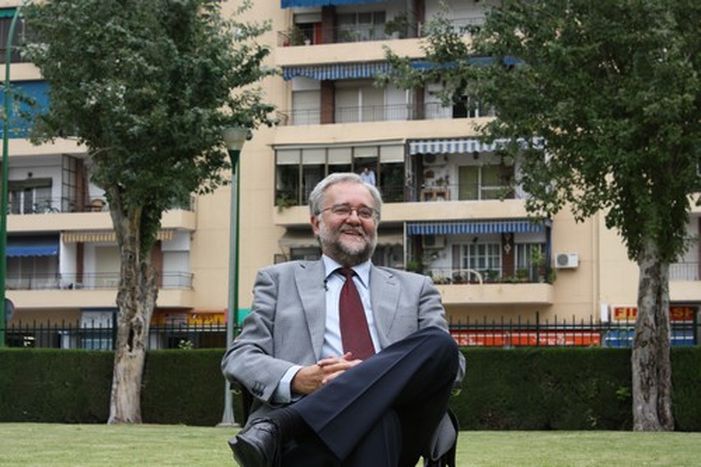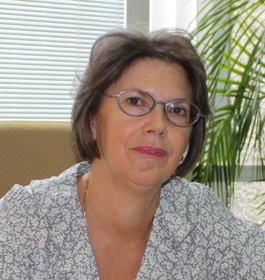
‘Holland, Denmark are language learning examples for France, England and Spain’
Published on
Translation by:
 Kate Stansfield
Kate Stansfield
In Spain, professionals like Ignacio Bosque condemn the lack of government investment into language teaching in European universities
‘Spanish is one of the only modern languages in which a walk is ‘given’, not ‘gone for’. A conventional dictionary gives a reasonably correct definition of its meaning. Pasear is the action of ‘going for’ a walk or stroll. But what to do with the noun? Who tells us that in Castellano, walks are ‘given’?’ With questions like these, Ignacio Bosque, an academic from the Spanish Academia Real de la Lengua (the official royal institution that regulates the Spanish language), opens the tenth international conference of the European confederation of language centres in higher education (Confederación Europea de Centros de Lenguas en la Enseñanza Superior, CERCLES). The conference, entitled ‘Language Centres for a Plurilingual Future in Europe’, takes place in Seville between 18 and 20 September, with more than 350 specialists attending from over twenty countries.
'Teachers should teach not what is in the textbooks, but is irreplaceably personal'
Throughout his speech Ignacio Bosque puts particular emphasis on how enthusiasm about language learning is not purely a curricular requirement, but also a cultural question. ‘If it is made a priority, it will move forward.’ Countries with a very high number of speakers of the national language usually have a ‘self-sufficient complex’ that slows down this learning. Holland and Denmark must be made an example for other nations, such as France, England and Spain.
Language, adds Ignacio Bosque, is something vibrant and dynamic. The linguist clarifies that combined dictionaries attempting to go further than the ‘purely denotative’ are probably not the only solution for language teaching, ‘but it is an attempt to understand and a possible way of obtaining the levels required by the European Union.’ Lastly, he makes an appeal for encouragement from teachers, telling them to let themselves be surprised by the everyday and to ‘teach what is not in the textbooks, but is irreplaceably personal.’
A Bologna Process that nobody believes in
Since its creation in 1991, CERCLES has reunited European professionals from the academic background of languages every two years. In 2008, the main objective is to establish a permanent exchange of ideas by constructing a network between university institutions, with the aim of confronting the changes brought about by the complete application of the Bologna Process for language learning in Europe. A transformation classed by many as a ‘paradox’ because it does not put into practice what was signed on paper.
All children between six and twelve in Spain have support teachers for their English learning
Marta Genís Pedra, president of the ACLES (association of language centres in higher education) in Spain, condemns the hypocrisy of the Spanish government. Her condemnation comes in the year when UNESCO declared 2008 as the International Year of Languages under the slogan ‘Languages count’, yet ‘not a single public or official institution has mentioned it.’ Although Marta Genís thinks that language teaching ‘has improved a great deal in Spain,’ she remains very spectical about Spain’s ability to reach the standards imposed by the European Space for Higher Education.
Marta Genís, for instance, wonders how a student in higher education will be able to master two languages (in addition to their mother tongue) if the curriculum reduces the hours spent on languages in order to adapt all university courses to four years, as stipulated by the Bologna Process. The advances made in primary education are worthy of praise: all children between six and twelve in Spain have support teachers for their English learning, ‘but this boost cannot stop there.’
Only 1% of GDP directed towards foreign language teaching
Today, only 1% of GDP is channelled into foreign language tuition in Spain, leading to a lack of resources, teaching staff and hours. This, in turn, is having a detrimental effect on the preparation of the student who is acutely aware that in Europe, without languages, ‘there is nothing to do,’ as highlighted by Lucia Giordano, a recent graduate of the University of Milan.
 Frenchwoman Marie Christine Orsini, director of the Institute of Languages in Seville, explains that all activities previously considered as ‘complementary’ in official language learning centres in Spain are now categorised as ‘appraisable hours and content’. In other words, they include film screenings, film commentaries and activities suggested by the students themselves. The statistics from last year bode well: 11, 911 students from forty-five different nationalities registered to study one of ten languages, a number that is due to increase to eleven in the coming year (2008/2009) with the addition of Chinese. On the other hand, she expresses concern because foreign language learning is still not an ‘obligatory’ part of completing a university degree.
Frenchwoman Marie Christine Orsini, director of the Institute of Languages in Seville, explains that all activities previously considered as ‘complementary’ in official language learning centres in Spain are now categorised as ‘appraisable hours and content’. In other words, they include film screenings, film commentaries and activities suggested by the students themselves. The statistics from last year bode well: 11, 911 students from forty-five different nationalities registered to study one of ten languages, a number that is due to increase to eleven in the coming year (2008/2009) with the addition of Chinese. On the other hand, she expresses concern because foreign language learning is still not an ‘obligatory’ part of completing a university degree.
Translated from Caso español: aprendizaje de lenguas contra el complejo de autosuficiencia


